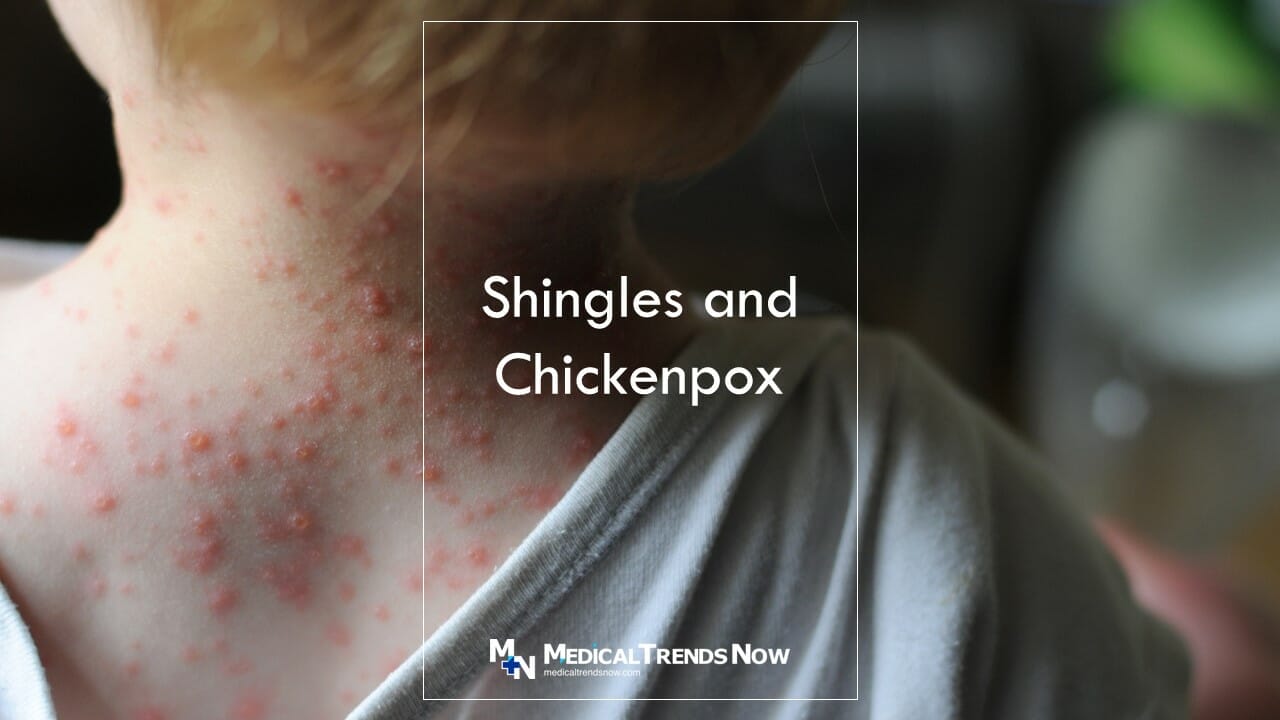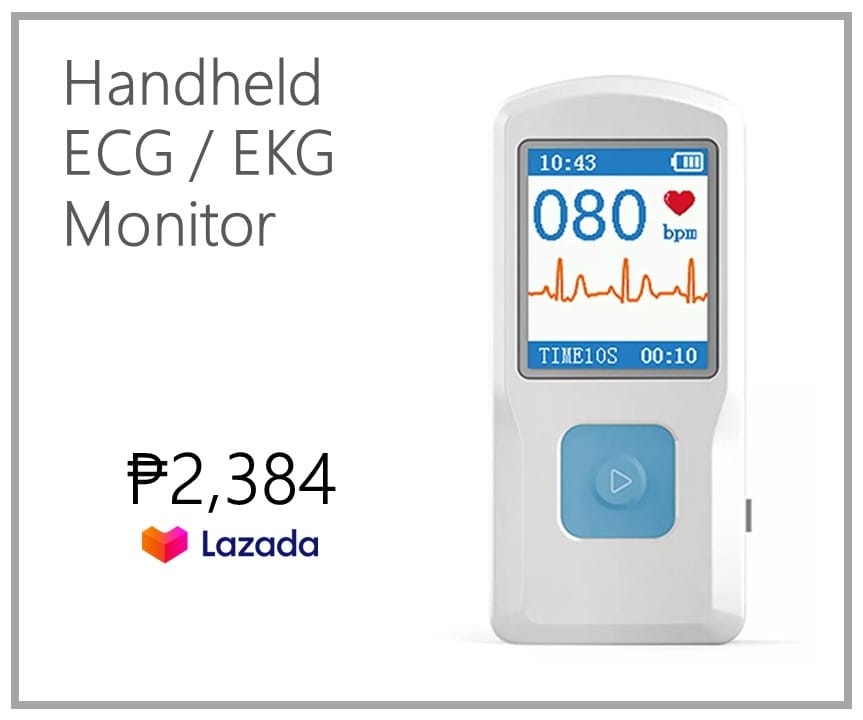Table of Contents
Shingles are a rare but serious complication of varicella or chickenpox. It’s caused by the same virus that causes chickenpox, but it usually affects the nerves in the back of your neck and stomach. There’s no cure, but there are treatments available that can make the pain less intense. If you never had chickenpox and want to know about shingles, you can learn more about it here.
What Exactly Is Chickenpox?
Chickenpox is a highly contagious virus that most people get during childhood. The virus causes red, itchy bumps all over the body that may turn into blisters. Most people who get chickenpox will also get a fever, but it is not very high and usually goes away within a few days. Chickenpox is typically harmless, but it can lead to serious complications in very rare cases, such as pneumonia (a lung infection) or even encephalitis (a brain infection). If you have never had chickenpox, you can still get it from someone else, and there is a risk of passing the virus on to others if you get infected.
Chickenpox vs. Shingles
Chickenpox is a common childhood illness that most people recover from without any serious consequences. However, chickenpox can also cause shingles, a painful skin rash that can last for weeks or even months. Shingles are caused by the same virus that causes chickenpox, but it often occurs in adults who have never had chickenpox. Chickenpox is spread from person to person; someone with shingles cannot be spread from person to person. Anyone can get shingles, but it is most common in people over 50 years of age. The virus attacks the nervous system and may cause severe pain, itching, and blistering on one or more sides of the body. If left untreated, shingles can lead to permanent nerve damage.
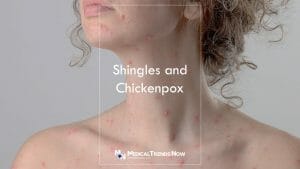
What Are The Signs And Symptoms Of Shingles and Chickenpox?
Chickenpox is a highly contagious virus that is most commonly spread through contact with an infected person. Symptoms of chickenpox include fever, rash, and headache. Shingles is a rare but potentially serious complication of chickenpox that can occur when the virus attacks the nerves in the skin. Symptoms of shingles may include pain, tingling, and blindness. Both chickenpox and shingles are easily prevented by getting vaccinated against chickenpox as a child or adult.
What Are The Causes Of Chickenpox and Shingles?
Shingles is caused by the reactivation of the varicella-zoster virus (VZV), which is also responsible for causing chickenpox. The VZV is usually dormant inside the nerve cells in the skin but can become active when exposed to a triggering factor, such as sunlight or other viruses.
Can Chickenpox and Shingles Be Transmitted From One Person To Another?
Yes, chickenpox and shingles can be transmitted from one person to another. The ways VZV can be transmitted include:
- Direct contact with the skin, eyes, or nose of an infected person
- From an object or surface that has been contaminated with the virus
- Through contact with saliva or mucus from an infected person
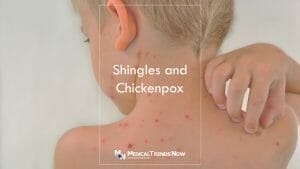
Are Chickenpox and Shingles Prevented with the same vaccine?
Yes, both chickenpox and shingles can be prevented by getting vaccinated against chickenpox as a child or adult. The varicella-zoster virus is a highly contagious virus, but with proper vaccination, there is very little risk of getting it.
Although chickenpox and shingles are both viruses, they are not prevented with the same vaccine. The chickenpox vaccine is made from pieces of live varicella zoster virus (VZV), while the shingles vaccine is made from dead VZV proteins that have been weakened by heat treatment. Both vaccines protect people against chickenpox, but only the shingles vaccine protects people against shingles. It is recommended by the CDC to get the shingles vaccine and receive the chickenpox vaccine.
What Tests Are Available for Chickenpox and Shingles?
There are a few different tests that can be done to see if you’ve had chickenpox or shingles. These tests include a skin test, a blood test, and an MRI.
Both chickenpox and shingles can be diagnosed by a skin rash diagnosis and a blood test to check for the presence of the virus. If either condition is left untreated, it can lead to serious health problems, including pneumonia. There is no cure for either chickenpox or shingles, but both conditions can be treated with antiviral medications and rest.
Drugs Used for Chickenpox and Shingles
There are many medications available to treat chickenpox and shingles. Some of these medications are antiviral medications and painkillers.
- Varivax (Varicella) – is a vaccine made from dead virus proteins that have been weakened by heating. It protects people against chickenpox, but not shingles.
- Varicella-zoster immune globulin (VZIG) – is a blood product used to help prevent chickenpox and shingles in people who are already infected with the varicella virus.
- Shingrix (Zoster vaccine) – a live, attenuated vaccine made from the virus that causes shingles. It is given as a shot in the arm.
- Zostavax (Zoster vaccine) – is a vaccine made from the virus that causes shingles. It is given as a shot in the arm.
- Pain relievers for these conditions include paracetamol, ibuprofen, naproxen, and other NSAIDs.
Natural Remedies for Chickenpox and Shingles Rashes
There are a few natural remedies for chickenpox and shingles rashes that can be helpful. For chickenpox, some people recommend taking oatmeal baths or applying a topical cream such as calamine lotion. For shingles, some people recommend taking ibuprofen or drinking lots of fluids. It is important to talk to your infectious disease doctor about which remedies are right for you, as not all remedies will work for everyone.

How To Prevent Contagious Adult Chickenpox and Shingles? Do I need to get vaccinated?
There is a lot you can do to help prevent chickenpox and shingles. The best way to avoid both diseases is by getting vaccinated. Immunization against chickenpox (varicella) starts at 12 months of age and immunization against shingles (herpes zoster) starts at age 60 years or older. If you have never had chickenpox, it is still possible to get the disease, but it is much less likely. Although there is no cure for either disease, early diagnosis and treatment with antivirals may help reduce the severity of symptoms.
Do You Need to Visit A Doctor For Shingles and Chickenpox?
Although shingles can be a very unpleasant experience, it is usually non-fatal. However, if left untreated, it can lead to permanent nerve damage and reduce the quality of life. Therefore, it is important to get treatment as soon as possible if you experience any symptoms of shingles.
The most common symptom of shingles is pain and itching on one side of the body. Other symptoms may include fever, headache, muscle aches, and fatigue. If you experience any of these symptoms, it is important to consult a doctor as soon as possible to rule out other more serious conditions.
What specialist should I see if I get chickenpox or shingles?
If you have never had chickenpox, your best bet is to see a general physician. If you have had chickenpox but never shingles, you should see a specialist who is familiar with the shingles vaccine. Shingles occur when the varicella-zoster virus reactivates and causes painful blisters on one or more skin surfaces. Treatment typically includes pain-relievers and antivirals.
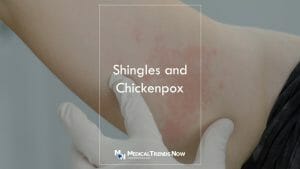
FAQs about Shingles
Is shingles a painful medical condition?
Shingles is a painful medical condition that results from the reactivation of varicella-zoster virus (VZV) in a person who has never had chickenpox. The rash that usually accompanies chickenpox may develop into shingles, which can occur anywhere on the body. The pain associated with shingles can be intense and last for several weeks. The pain is often described as a burning or stinging sensation.
Can shingles be cured through medications?
Shingles cannot be cured through medications, but the pain and rashes can be managed. It is important to get treatment as soon as possible to reduce the pain and potential long-term effects of shingles.
Is there a home remedy for shingles?
There is no cure for shingles, but there are a number of treatments that can help ease the symptoms. Some people find relief from painkillers or ice packs, while others use over-the-counter medications such as ibuprofen. If you have shingles, it is important to seek medical attention as soon as possible to ensure that the disease is properly diagnosed and treated.
Who is at risk?
Shingles can occur at any age, but they are more common in older adults. It is also more commonly seen in people with weakened immune systems due to diseases like AIDS or cancer. If you are at risk of getting shingles, you should get vaccinated against chickenpox as soon as possible to reduce your risk of developing the rash. Even if you have already been vaccinated as a child, you can still receive a shingles vaccine to prevent it as an adult.
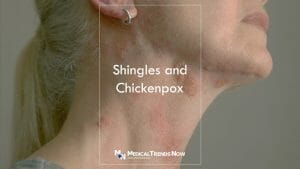
What food or drinks should I avoid when I have shingles?
If you have shingles, you should avoid eating or drinking anything that might make the rash worse. Some foods and drinks that can worsen a shingles rash include spicy foods, dairy products, citrus fruits, and alcohol. You should also avoid touching your skin if you have shingles and avoid sun exposure. If your symptoms get worse or if the rash is very painful, you may need to see a doctor.
What should I ask my doctor about shingles?
- What are the symptoms of shingles?
-
How is shingles diagnosed?
-
What are the treatment options for shingles?
What activities should I avoid if I have shingles?
-
Interacting physically with people.
-
Being exposed to the sun.
-
Engaging in any strenuous activity.
-
Drinking alcohol or taking medications that might make the rash worse.
-
Smoking.
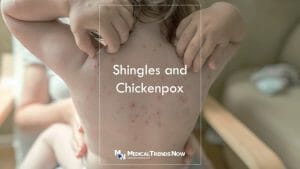
What will happen if I don’t treat shingles?
Shingles are a virus that attacks the skin and can cause pain, redness, and blisters. If left untreated, shingles can lead to permanent scarring. There is no cure for shingles, but there are treatments available that can help relieve symptoms. If you develop shingles, it is important to seek medical attention as soon as possible so that the infection can be treated and your skin protected.
What are the risk factors for shingles?
Risk factors associated with shingles include age, sex, and race. People over 50 years of age are more likely to develop shingles than younger people, and women are more likely to develop shingles than men. People who have had chickenpox are also at increased risk for developing shingles later in life. The race also appears to be a risk factor for developing shingles.
- Age: Shingles are more common as people age.
-
Gender: Men are more likely to develop shingles, but the virus can affect anybody.
-
Race: People of African American and Native American descent are especially susceptible to shingles.
What you can do to reduce your risk of shingles? (Shingles vaccine)
-
Get vaccinated: If you’ve never had chickenpox, you’re likely to develop shingles if you’re exposed to the virus. The varicella vaccine is a good way to protect yourself from this disease.
-
Avoid close contact with people who have chickenpox: Shingles are spread through contact with the saliva or mucus of someone who has chickenpox. Avoid contact with people who have chickenpox, and keep your hands clean if you do come in contact with them.
-
Stay healthy: Keep your overall health stable by getting regular exercise, eating a balanced diet, and avoiding tobacco and other harmful substances.
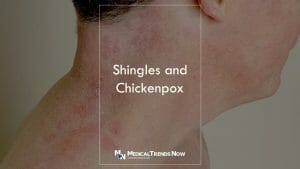
Takeaway: Can You Get Shingles If You Have Never Had Chickenpox?
Approximately one in five people who contract chickenpox will develop shingles later in life. Shingles are caused by the varicella-zoster virus, which is the same virus that causes chickenpox. It can cause severe pain, skin redness, and blisters that may last for several weeks or even months. Shingles can be frustrating and debilitating but is not usually life-threatening. If you are at risk, get vaccinated. If you have never had chickenpox, speak to your doctor about the varicella vaccine.
Disclaimer
This website is intended to educate both members of the general public and those working in the medical field on the prevalence, causes, and methods for preventing, diagnosing and treating diseases that affect people throughout their lives. This website’s content is provided solely for informational reasons and is not meant to serve as a substitute for the advice of a qualified medical practitioner.

Sources: Develop chickenpox and shingles

